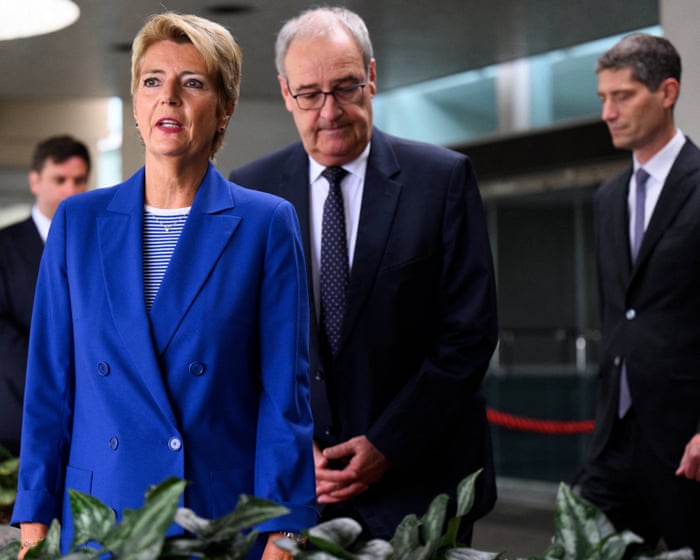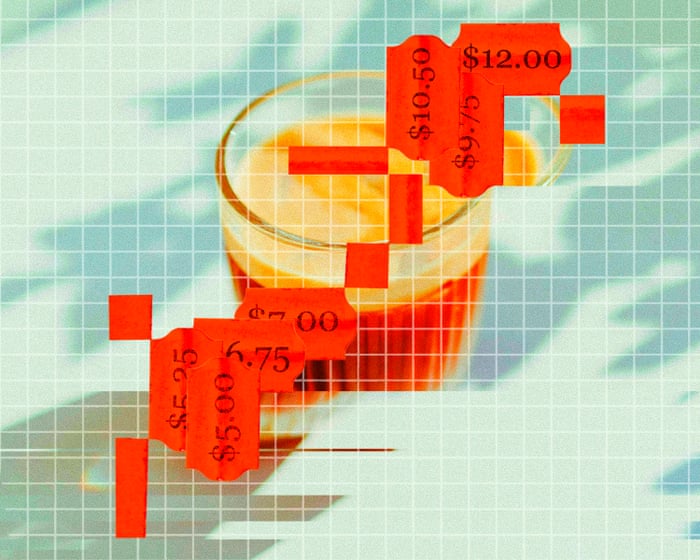Growing up in Zurich often felt disconnected from the world, which seems odd since Switzerland sits at the center of Europe. The city’s trams buzz with conversations in countless languages, and Zurich Airport offers more direct intercontinental flights than Berlin. Yet, coming of age here felt like watching the world through thick, bulletproof glass—observing but never truly engaging.
That illusion shattered last week when Donald Trump announced 39% tariffs on Swiss exports. The U.S. is Switzerland’s top export market, absorbing nearly 19% of its goods. Swiss industry leaders warned that these tariffs could “effectively annihilate” sales to America. In response, the country’s right-wing economy minister, Guy Parmelin, rolled out emergency measures to prevent mass layoffs. The tabloid Blick captured the national mood with a stark black front page, declaring it a “black day” for Switzerland.
Trump’s tariffs have triggered an identity crisis in a nation that grew wealthy through exports while remaining aloof from global politics. To understand Switzerland, picture an exclusive country club. Membership isn’t easy—strict immigration laws keep most out, unless you’re wealthy. The place is immaculate: every inch of land meticulously maintained, every lawn perfectly trimmed. After work, the Swiss cycle through pristine landscapes or lounge by spotless lakes, flaunting their toned bodies.
Above all, Switzerland offers its members peace. History rarely intrudes here. The last war the country fought was in 1847—a 26-day conflict with about 100 casualties. Since 1848, a right-wing majority has governed uninterrupted. The economy has shrunk only six times in the last 60 years.
As a teenager in the 2000s, I watched Europe grapple with Islamist terrorism and youth unemployment while Switzerland remained untouched. Crime is low, social conflict rare—though Islamophobia did surface in the 2009 vote to ban minarets. Strikes are almost nonexistent; disputes are settled through compromise or vented via direct democracy. And yes, 93.2% of trains run on time.
This predictability is why so many wealthy people move here. In a chaotic world, Switzerland offers a parallel reality—a chance to escape. It’s the dream behind Heidi, where a city-weary girl finds solace in the Alps, and The Magic Mountain, where Europe’s elite retreat to Switzerland to ponder the world from a safe, detached distance.
Swiss neutrality and isolation have fostered a sense of exceptionalism. Emerging unscathed from two world wars reinforced the belief that staying apart means staying safe—and profitable, even if it meant trading with Nazi Germany or apartheid South Africa.
Even today, isolation pays off. Outside NATO and the EU, Switzerland is Europe’s only country (besides Iceland) with a free trade deal with China. Defense spending is just 0.7% of GDP—far below NATO’s 3.5% target. Aid to Ukraine? A mere 0.13% of GDP, eight times less than the Netherlands. Switzerland thrives in the free world without bearing its burdens. But now—In this new era of ruthless economic competition, Switzerland’s strategy of trying to “have its cake and eat it too” no longer works.
Trump’s move caught Switzerland completely off guard. Many Swiss assumed their right-leaning government, led by President Karin Keller-Sutter, would get along well with the Rolex-wearing Trump. After all, he dislikes the EU, taxes, and “wokeness”—just like the Swiss. When U.S. Vice President JD Vance claimed at the Munich Security Conference in February that social media “censorship” was a bigger threat to Europe than Russia, Keller-Sutter even praised his speech as “very Swiss.”
But Trump’s sudden tariff announcement has left Swiss leaders scrambling for a response. Last week, Keller-Sutter tried to persuade Trump to overlook the U.S.’s $38 billion trade deficit with Switzerland. Trump later dismissed the call, saying, “The woman was nice, but she didn’t want to listen.”
Switzerland has little leverage. It has already committed to buying F-35 fighter jets, and Keller-Sutter can’t even offer lower tariffs on U.S. goods—Switzerland already scrapped industrial tariffs unilaterally in 2024. If Trump extends the 39% tariffs to pharmaceuticals, the economic hit could be severe: up to 0.7% of GDP annually, or 700 Swiss francs per person, according to the Swiss Economic Institute.
But the bigger shock is psychological. A country used to always getting its way now faces a worse tariff rate than Algeria (30%). The long-standing belief in Swiss exceptionalism is crumbling in this multicultural, multilingual nation.
Making matters worse, Brussels is securing a better trade deal than Bern. This has left many Swiss puzzled, especially since only 17% supported EU membership in a 2024 poll. Keeping the EU at arm’s length may no longer be the smart move. The first test comes soon: Swiss voters will decide on new economic treaties with the EU—a move the far right is fiercely opposing.
Ironically, Trump’s impulsive leadership style should have made him a natural fit for Switzerland’s elite circles. Who would have guessed he’d be the one to finally break its long-standing isolation?
—Joseph de Weck is a fellow with the Foreign Policy Research Institute.
FAQS
### **FAQs About Switzerland’s Isolation & Trump’s Tariffs Impact**
#### **Basic Questions**
**1. What does “Switzerland enjoyed a comfortable isolation” mean?**
Switzerland historically stayed neutral in global conflicts and relied on strong trade and banking, avoiding major disruptions.
**2. How did Trump’s tariffs affect Switzerland?**
The U.S. imposed tariffs on steel, aluminum, and other goods, making Swiss exports more expensive and hurting its economy.
**3. Why was Switzerland’s sense of security “shattered”?**
The tariffs showed that even neutral countries can’t fully escape global trade disputes, forcing Switzerland to rethink its economic strategy.
**4. What industries in Switzerland were most affected?**
Steel, aluminum, pharmaceuticals, and precision machinery faced higher costs and lower demand due to tariffs.
—
#### **Intermediate Questions**
**5. Did Switzerland retaliate against U.S. tariffs?**
Yes, Switzerland imposed tariffs on U.S. goods like agricultural products, but carefully to avoid escalating tensions.
**6. How does Switzerland usually handle trade conflicts?**
It relies on diplomacy, neutrality, and negotiations through the WTO (World Trade Organization).
**7. What long-term changes did Switzerland make after the tariffs?**
It diversified trade partners, strengthened EU relations, and invested in industries less dependent on the U.S. market.
**8. Were other countries besides Switzerland affected by Trump’s tariffs?**
Yes, the EU, China, Canada, and Mexico also faced tariffs, leading to global trade tensions.
—
#### **Advanced Questions**
**9. How did the Swiss franc react to the tariffs?**
The franc (CHF) remained strong due to Switzerland’s stable economy, but exporters struggled with higher costs.
**10. Did the tariffs impact Swiss banking or financial services?**
Indirectly—trade uncertainty made investors cautious, but Swiss banks were less affected than manufacturing sectors.
**11. What role did the WTO play in Switzerland’s response?**
Switzerland filed complaints with the WTO, arguing the tariffs violated trade rules, but resolutions took time.
**12. Has Switzerland’s trade policy changed permanently because of this?**
Yes, it now prioritizes stronger trade agreements and reduced reliance on any single market like the U.S.
—
#### **Practical Tips &



